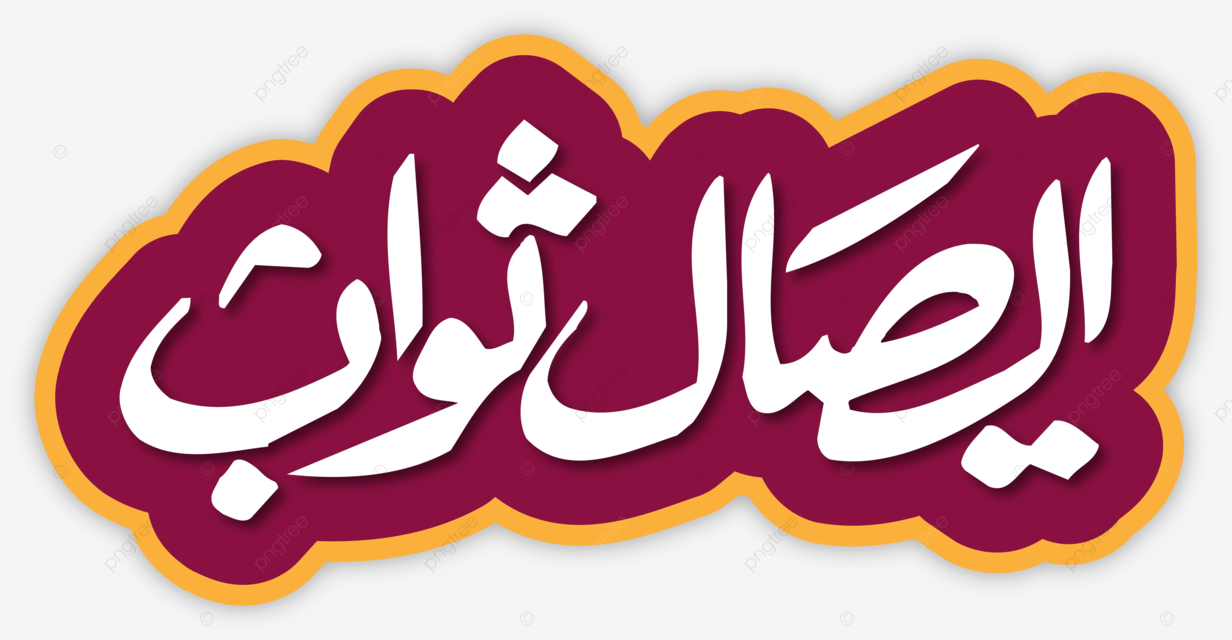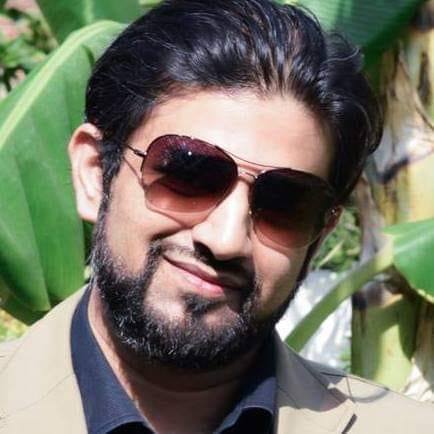
Isaal e Sawab

Isaal e Sawab
It has been noticed that some people today call Isaal e sawab as an "evil innovation" and say only actions done by person himself in his/her life will benefit after death. They only believe that three things continuously reward the dead as narrated in this hadith:
Abu Huraira (Allah be pleased with him) reported Allah's Messenger (ﷺ) as saying:
When a man dies, his acts come to an end, but three, recurring charity, or knowledge (by which people) benefit, or a pious son, who prays for him (for the deceased). [Sahih Muslim Book 13, Hadith 4005]
They claim that there is no proof of denoting other kinds of good deeds.
This article below is based on absolutely Sahih hadiths and commentaries of classical scholars who in majority accepted Isaal e sawab.
It shall be based on following three crucial points
A) Proofs from authentic hadiths
B) The practice of Salaf as-Saliheen and explanation given by classical scholars
C) Answer to proofs misused by Ahlul Bidah (i.e. Ghair Muqalideen/Wahabi sect)
Proof # 1
Imam Muslim in his “SAHIH” made a whole chapter with title: Chapter 3: THE DECEASED IS ENTITLED TO REWARD FOR THE SADAQA GIVEN AFTER HIS DEATH
And then he brought this following hadith under it.
A'isha (Allah be pleased with her) reported that a man came to Allah's Apostle (may peace be upon him) and said: Allah's Messenger, my mother died all of a sudden without making any will. I think if (she could have the opportunity) to speak she would have made a Sadaqa. Would there be any reward for her if I give charity on her behalf? He (the Holy Prophet) said: Yes. [Book 013, Number 4003: (Sahih Muslim)]
Look carefully that Prophet (Peace be upon him) is saying that a dead person is entitled to sawab of Sadaqa done by another person whereas some people of misguidance say that a dead person is not entitled to sawab denoted by another person (Naudhobillah). Also remember that this action is not done by the dead but rather his son “ON MOTHER’S BEHALF”
Proof # 2 (Doing Hajj on the behalf of a passed away person)
Narrated Ibn 'Abbas: A woman from the tribe of Juhaina came to the Prophet and said, "My mother had vowed to perform Hajj but she died before performing it. May I perform Hajj on my mother's behalf?" The Prophet replied, "Perform Hajj on her behalf. Had there been a debt on your mother, would you have paid it or not? So, pay Allah's debt as He has more right to be paid."[Volume 3, Book 29, Number 77: (Sahih Bukhari)
Note: Hajj is also an amal and performing an amal on behalf of a dead person proves that record remains open and Allah accepts good deeds of alive people of behalf of dead.
Proof # 3 (Fasting on behalf of a passed away person who had missed fasts)
Ibn Abbas (ra) reported that a woman came to the Prophet (Peace be upon him) and said, “My sister has died with two months successive fasts against her”. He said, “Listen, if she had a debt payable then would you have paid it?” She said, “Yes!” He said, “The right of Allah is more important to be paid”.
Imam Tirmidhi said: Ibn Umar (ra) and Sayyidah Ayshah (ra) have also narrated ahadith in this regard and the hadith of Ibn Abbas (R.A) is “HASAN-SAHIH (FAIR AND AUTHENTIC)”.[Reference: Sunnan Tirmidhi, Hadith # 710, Published by Dar ul Kutb al iLmiyyah]
In another Sahih report it also mentions of feeding a poor person everyday according to the fasts missed by dead person. [Refer to Sunnan Ibn Majah (1/558), Hadith # 1810, Mishkaat (1/559) and others] So one has the respite either he can fast or feed poor.
Proof # 4 (Reciting Quran and denoting it’s sawab)
This is the most important one and majority of scholars in past and present accept that Sawab of reciting Quran also reaches the deceased. Imam ash-Shafi’i (rah) is known to have differed on this regard but Alhamdolillah there are even proofs from him which prove doing “KHATM OF QURAN AT GRAVES”
Here is the first proof
Proof # 4a
أخبرنا أبو عبد الله الحافظ ثنا أبو العباس محمد بن يعقوبَ ثنا العباس بن محمد قال سألتُ يحيى بنَ مَعِيْنٍ عن القراءَةِ عندَ القبرِ فقالَ: حدثنا مُبَشِّرُ ابنُ إسمعيلَ الحلبيُّ عن عبد الرحمن بن العلاء بن اللجلاج عن أبيه أنه قالَ لبنيهِ: إِذَا أَدْخَلْتُمُوْنِي قَبْرِيَ فَضَعُوْنِي في اللَّحْدِ وقولُوا: بِسْمِ الله وعَلَى سُنَّةِ رسولِ الله صَلَّى الله عَلَيْهِ وَسَلَّمَ وسُنُّوا عَلَىَّ الترابَ سَنًّا، أَوْ اقْرَؤُا عِنْدَ رأسِي أَوَّلَ البَقَرَةِ وخَاتِمَتَهَا، فإنِّي رأيتُ ابنَ عُمَرَ يَسْتَحِبُّ ذَلِكَ
Translation: Abbas bin Muhammad (rah) asked Imam Yahya bin Ma’een about “RECITING (QURAN) AT THE GRAVE” he replied: It is narrated from Mubashar ibn Ismail al-Halbi who narrated from Abdur Rahman bin al-Ala bin Lajlaaj, who narrated from his father (Sahabi) that his father said to his sons: When you are entering me in the qabr then make a Lahd then say: In the name of Allah and upon the Sunnah of RasoolAllah (Peace be upon him)” and then start adding dust, after this stand on my (head’s) side reciting the “BEGINNING AND ENEDING OF SURAH AL-BAQARAH” because I saw Ibn Umar (ra) considering this as a “RECOMMENDED DEED” [Sunnan Bayhaqi al-Kubra (5/404), Hadith # 7097]
Regarding such ahadith mentioned in Bayhaqi, Imam al-Nawawi (rah) the legendary scholar said:
Translation: It is narrated in <> with “HASAN CHAIN” that Ibn Umar (ra) considered it “MUSTAHAB/RECOMMENDED” to recite the beginning and ending of Surah al-Baqarah “UPON THE GRAVE AFTER BURIAL” [Imam al-Nawawi in Kitab ul Adhkaar (1/162)]
Proof # 4b
Volume 1, Book 4, Number 215: (Sahih Bukhari)
Narrated Ibn 'Abbas: Once the Prophet, while passing through one of the grave-yards of Medina or Mecca heard the voices of two persons who were being tortured in their graves. The Prophet said, "These two persons are being tortured not for a major sin (to avoid)." The Prophet then added, "Yes! (they are being tortured for a major sin). Indeed, one of them never saved himself from being soiled with his urine while the other used to go about with calumnies (to make enmity between friends). The Prophet then asked for a green leaf of a date-palm tree, broke it into two pieces and put one on each grave. On being asked why he had done so, he replied, "I hope that their torture might be lessened, till these get dried."
Why punishment is reduced due to plants on grave?
The reason is that trees, leaves, plants do “Dhikr of Allah” so the logic of Adhaab being reduced is that till the time they remain fresh they will do dhikr due to which the punishment on Sahib-e-Qabr will be reduced, when Tasbih of Plants benefits the deceased then imagine the benefit of humans reciting Quran at graves and denoting the sawab.
This is why Imam Ibn Hajr al-Asqalani (rah) said:
إن المعنى فيه أن يسبح ما دام رطباً فيحصل التخفيف ببركة التسبيح، وعلى هذا فيطرد في كل ما فيه رطوبة من الأشجار وغيرها. وكذلك فيما فيه بركة كالذكر وتلاوة القرآن من باب الأولى
Translation: The meaning of it is that till the time the stem remains fresh it will keep on doing Tasbih and due to Barakah of that Tasbih the punishment will be reduced. It is also derived from this that everything which has freshness from trees/plants then to put it on graves is a cause of reducing punishment. Similarly “EVERYTHING WHICH HAS BARAKAH LIKE DHIKR AND RECITATION OF QURAN, IS MORE AWLA (I.E. GREATER) IN THIS REGARD” [Fath ul Bari, Sharh Sahih ul-Bukhari (1/426)]
b) The Practise of Salaf as-Saliheen & Explanation by Classical scholars
Ibn Qayyim al Jawziyyah is amongst the top ranking scholars of misguided Wahabi/Ghair Muqalid sect and they claim him to be a champion and reviver of deen. Although he is not Hujjat for us and proofs for Isaal e Sawab are proven from many other true Ahlus Sunnah scholars but I am showing proof from Ibn Qayyim so that opponents are left with no excuses.
Ibn Qayyim al Jawziyyah on real Salaf as-Saliheen
He states in his Kitab ar-Ruh:
وقد ذكر عن جماعة من السلف أنهم أوصوا أن يقرأ عند قبورهم وقت الدفن قال عبد الحق يروى أن عبد الله بن عمر أمر أن يقرأ عند قبره سورة البقرة وممن رأى ذلك المعلى بن عبد الرحمن وكان الامام أحمد ينكر ذلك أولا حيث لم يبلغه فيه أثر ثم رجع عن ذلك
Translation: It is narrated from a group of Salaf that they advised to recite Quran on their graves after burying them. Abdul Haq has narrated that Ibn Umar (RA) ordered (others) to recite Surah Baqarah on his grave. Muala bin Abdur Rahman also holds the same opinion, Imam Ahmed (rah) did not agree to this in the beginning because proof had not reached him then, however later he agreed. [Kitab ar Ruh by Ibn Qayyim, Page No. 64, Published by Dar Ibn Kathir, Damascus, Syria]
That has hit bulls eye from Ibn Qayyim and destroys the Wahabi version of Islam today, so Alhamdolillah it stands proven that Sufis are true followers of Salaf whereas Ghair Muqalideen/Salafis of today are just deceivers who disguise themselves with catchy names like “SALAFI”
Also note that Imam Ahmed (rah) rightly accepted reciting Quran on graves after proof reached him, unlike Ghair Muqalid sect of today who remain persistent even after proofs have reached them.
Hence Muslims should often visit graves of Awliya or their relatives and recite Quran there, Alhamdolillah I had the Sa’dat of doing that at Jannat ul Baqi in Madina al Munawwara.
Proofs from Majority of scholars including Salaf
Imam Zayn ud-din Ibn Nujaim al-Misri (rah) said:
والأصل فيه أن الإنسان له أن يجعل ثواب عمله لغيره صلاة أو صوماً أو صدقة أو قراءة قرآن أو ذكراً أو طوافاً أو حجاً أو عمرة أو غير ذلك عند أصحابنا للكتاب والسنة
Translation: According to us the sawab of deeds performed by one person reaches the other, this includes Praying, Fasting, Charity, “RECITATION OF QURAN”, Dhikr, Tawaf, Hajj, Umra or any other (good) deeds. This is proven from Quran and Sunnah [Al-Bahr ar-Ra’iq Sharah Kanz al Daq’aiq (3/62)]
Also refer to Hashiya Dur ul Mukhtar by Allama Ibn Abideen ash-Shami (rah) [Volume No. 4, Page Nos: 12-28]
Imam al-Khalal Abu Bakr (rah) the great Muhadith wrote a whole booklet especially on this topic with title: "Al Qira’ Andd al-Quboor (i.e. Recitation of Quran near the graves)” he narrates many proofs in it including this one
عن إبراهيم النخعي رحمه الله قال : " لا بَأْسَ بقراءةِ القرآنِ في المقابِر
Translation: Imam Ibrahim al-Nakha’I (rah) said: There is no harm in reciting Quran inside tombs [Al Qira’ Andd al Quboor, Page No. 3]
Imam Jalal ud-din Suyuti (rah) says:
إختلف في وصول ثواب القراءة للميت فجمهور السلف والأئمة الثلاثة على الوصول
Translation: There is difference of opinion whether the dead receives sawab due to “RECITATION OF QURAN” The majority of the Salaf and the three Imams are of the opinion that “IT REACHES” [Sharh as Sudoor (1/302)]
Note: Imam ash-Shafi’i (rah) was of the opinion that sawab does not reach the dead but Alhamdolillah even he accepted that “THERE IS NO HARM IN RECITING QURAN AT GRAVES EVEN DOING KHATM E QURAN IS FINE” [Refer to Kitab ul Adhkaar of Imam al-Nawawi, Page No. 278]


